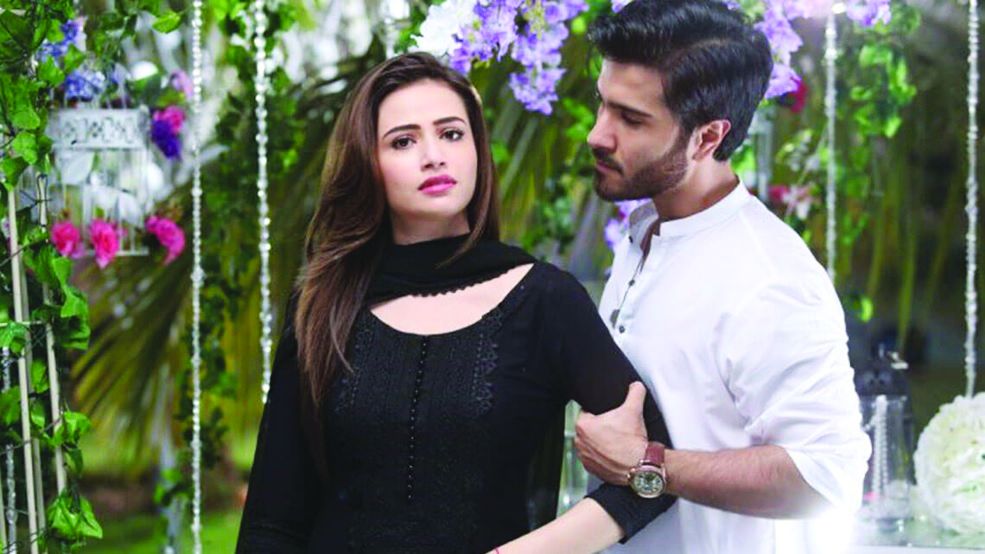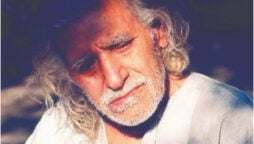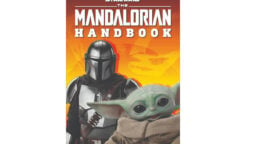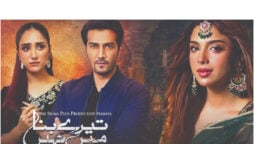Synopsis
Such characters are fiercely affecting the audience’s view of love and relationship

Pakistan’s drama landscape is living the era of the ‘Angry Young Man’. Most of the content we are consuming is replete with the insidiously problematic culture of ‘rage’ and ‘angromance,’ portrayed by the leading male character in various stories.
Volatile, demanding, and unforgiving; these male avatars have a predictable trajectory throughout the script. They all tend to fall in love with that one girl that will challenge their toxic masculinity and then these men full of angst and ego will use their power, dominance, and manipulation to claim their obsessive love. What is worse, most of these questionable portrayals later turn into glorified tragic heroes, compelling the audience to empathise with them.
The kind of men we need to avoid
For years, we have witnessed this ‘angry young men’ trope in Hollywood with Robert De Niro and in Bollywood with Amitabh Bachchan. But now such representations of outright violent and misogynistic mean are only subjected to an extreme backlash in both the aforementioned industries. We saw how the masses rejected Kabir Singh for his romanticised version of toxic masculinity. When is Pakistan’s entertainment industry rejecting such characters in dramas? If truth be told, it seems we have a long way to go. Time and again, we witness such characters surfacing in our stories as villains. But now, their presence seems to have become a norm on our screens with our actors trapped in portraying such vivacious roles.

The strongest portrayal of a noxious alpha male, in recent times, surely belonged to Feroze Khan’s Mir Hadi in Khaani, which aired in 2017. A spoiled brat-son-of-a-politician, he did horrifying acts on screen that truly gave us nightmares. But in the end, in a plot twist, he is saved from execution and rises as a redeemed hero. Although it was not unprecedented, however, never been portrayed in such a way as well which is why it was liked a lot and also gave a boom to Feroze’s carrier. He played a similar role in 2015 in Gul-e-Rana, where he kidnaps the love of his life and forcefully marries her.
Both these roles made Feroze Khan immensely popular amongst his female fans, who couldn’t stop gushing over his rough, tough, and dominating character. Mir Hadi especially became a hot favourite, thus welcoming a spell of such roles on our screens.
The aura of toxicity continued with Imran Ashraf’s role in Inkaar as Rehan Chaudhary. Yet again, the son of an influential man, he was obsessed with a girl who he stabs 25 times when she refused to marry him. As usual, the heroine forgives the villain as he turns over a new leaf to become a hero in the eyes of all.

A year later, we saw Feroze Khan return in the cliched avatar in Ishqiya. Boasting a vexed character so severely problematic, Khan marries his girlfriend’s sister to teach her a lesson when she was unable to marry him due to family pressure. But clearly, the star doesn’t get tired of playing the same avatars. In the much recent, Aye Musht-E-Khaak he plays the selfish, and manipulative Mustajab who tries to satiate his ego by marrying a girl who says no to him, when he is already betrothed to a woman back in America.
We also saw Danish Taimoor joining the bandwagon and essaying an angry young man in Ishq Hai. He ruins the reputation of the one he loves by forcibly kidnapping her and marrying her. Now, in his currently on-air Kaisi Teri Khud Garzi, he essays the drug-addict Shamsher who thinks he owns the girl he wants, with or without her consent.

Such characters are fiercely affecting the audience’s view of love and relationship. So much so, that fans accidentally start romanticising such behavior by male heroes, finding it swoon-worthy that these men can go to any lengths to get the heroine.
But the truth is that such toxic on-screen characters are borderline sociopaths who can never be dreamboats or heartthrobs, no matter how wealthy, influential, or ruggedly handsome they are. After all, being obsessive, lustful, and possessive is not equivalent to love.
The soft boys we adore
It is no harm for our writers and directors to unveil the soft and vulnerable side of men to the world. The kind of guys that are sensitive, obliging, respectful, and show emotional vulnerability are the heroes we need to ship on our screens. And yes, they too get popularity, love, and of course, ratings.
The biggest proof of this is the blockbuster story of Parizaad. From young to old, all Pakistanis were hooked to this new-age story that showed a man so soft and possessing a heart of gold. All the wealth in the world still kept him humble and exhibited that a hero doesn’t always have to be a raging, sturdy, handsome thug to make a story an ultimate hit.

We also saw Shehryar Munawar’s role as Osama in Sinf e Ahan- a Commander who probably needs to be rough and tough due to his career in the army. In his personal life, he was the softest towards his stepdaughter and his wife- who didn’t even love him. But this character was determined to protect her as a progressive partner and be there by her side.
Haroon Shahid’s character as Saffan in Hum Kahan Kay Sachay Thay was a loving and sincere friend. When no one understood Mehreen, he did and was determined to stay with her as a pillar of support till she allowed him to. Meanwhile, Aswad who was an ego-centric male maniac, from the very beginning, rose as a hero again due to a plot twist in the drama.
Haroon’s other character Saim in Akhir Kab Tak gained much popularity. Fajar, a victim of sexual harassment, is misunderstood by her family and in-laws due to her constant nervousness and fears, Saim, as a husband, stood with her to support her in every decision she took.
We truly believe it’s time for the drama industry to undergo the ‘soft-boy revolution’. It’s already happening in the West, with Netflix particularly making sure that they have soft boys as the champions in most movies and series. For example, Netflix’s You has ensured that the audience has no sympathies with Joe Goldberg and his shenanigans. But it does impart the message that a difficult childhood can lead to troublesome adulthood.
Since we are already influenced by the West, let’s hope that the soft-boy revolution is one of the inspirations we soon adopt in our entertainment, creating a healthy image about love, relationships, and men.
Catch all the Breaking News Event and Latest News Updates on The BOL News
Download The BOL News App to get the Daily News Update & Live News.












 Read the complete story text.
Read the complete story text. Listen to audio of the story.
Listen to audio of the story.